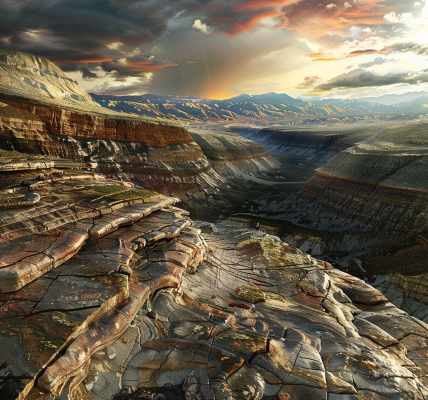New Mexico’s ancient sands have unveiled a groundbreaking discovery that is reshaping the narrative of human history in America. Archaeologists have unearthed 23,000-year-old footprints, shedding light on the earliest inhabitants of the continent.
A team of researchers has determined that these footprints are over 23,000 years old, a significant advancement from the previous belief that humans existed in North America around 13,000 years ago. This revelation offers a unique glimpse into the ancient past, allowing modern scientists to piece together the activities and interactions of early humans.
The discovery took place in White Sands National Park, known for its rich archaeological significance. The site in New Mexico has provided a treasure trove of insights into human behavior, showcasing how our ancestors navigated the landscape and interacted with the environment and wildlife.
Sally Reynolds, a leading academic in paleoecology at Bournemouth University, emphasized the significance of these findings, stating, ‘These footprints provide a valuable window into the lives our ancestors lived and how much they were like us.’
Previously, a study conducted in 2021 by U.S. Geological Survey researchers had estimated the age of the footprints to be around 23,000 years old, contrary to the earlier belief of 13,000 years. To validate these findings, a subsequent study was published in the journal Science in late 2023, confirming the revised dating through the analysis of fossilized pine pollen.
The research team also identified pollen and common ditch grass seed in the footprints and the surrounding layer of hardened mud, further supporting the new timeline. By utilizing optical stimulated luminescence to examine background radiation in quartz, the team corroborated the age of the footprints, linking them to the Last Glacial Maximum period.
Matthew Bennett, a professor at Bournemouth University and co-author of the study, expressed satisfaction with the results, stating, ‘We are pleased that our follow-up investigation reaffirmed the accuracy of our initial study, offering a captivating update on the movements and lifestyles of our ancestors.’
This groundbreaking discovery in New Mexico underscores the continuous evolution of our understanding of early human history in America, highlighting the resilience and adaptability of our ancient predecessors.





